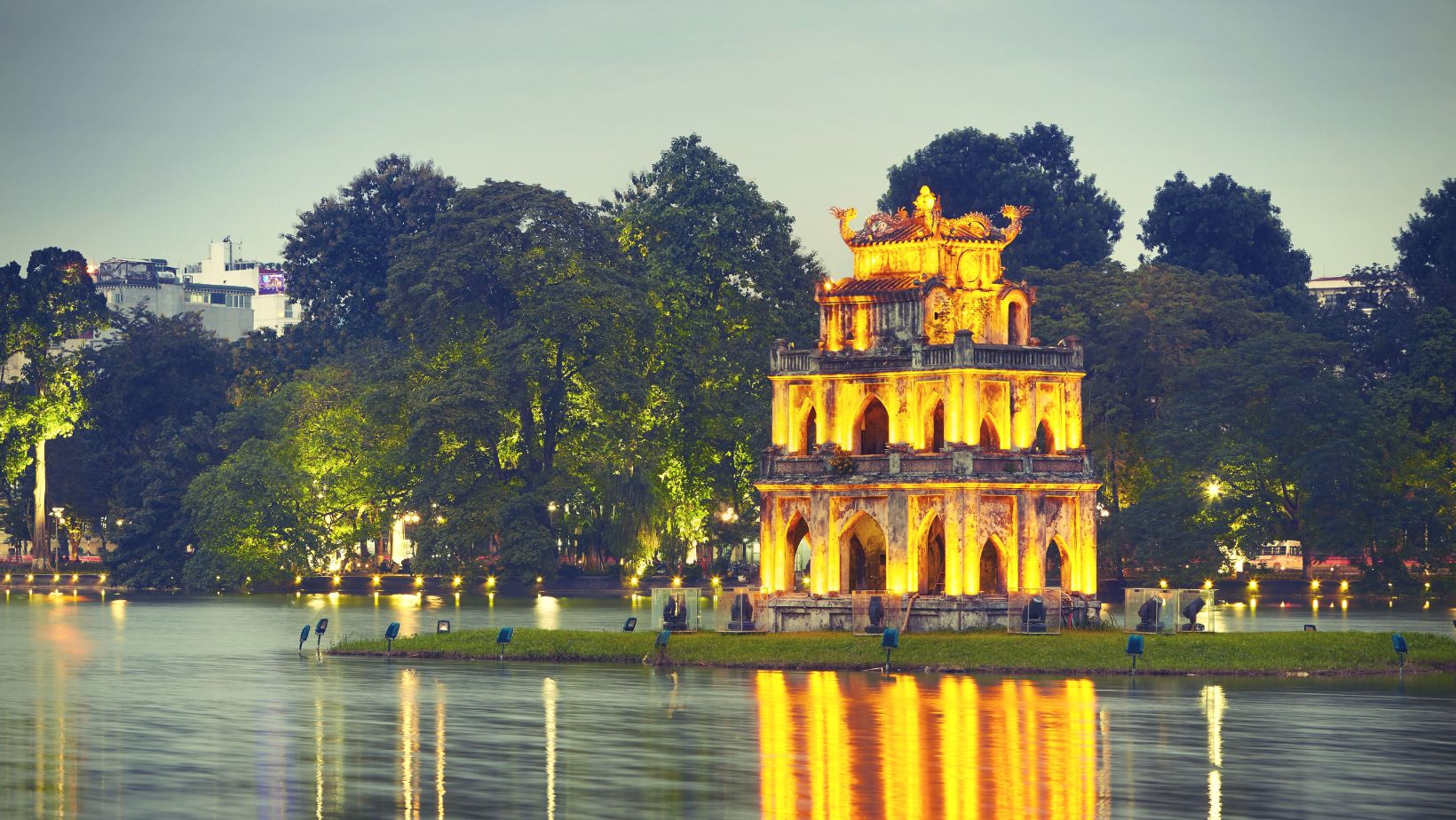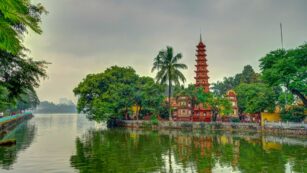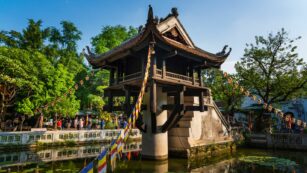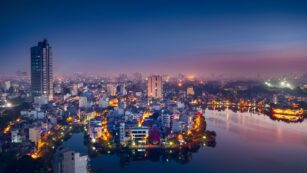
Nestled in the northern part of Vietnam, Hanoi stands as the vibrant heart of the country, serving as its capital city. With a rich history that spans over a thousand years, Hanoi is a fascinating blend of old-world charm and modern dynamism, making it a pivotal cultural and political hub. As travelers and locals wander through its bustling streets, they encounter an intriguing mix of ancient temples, French colonial architecture, and sleek skyscrapers—all telling the story of a city that has seen profound transformations.
What Is the Capital City of Vietnam
Hanoi, the capital city of Vietnam, serves as the heart of the nation, intertwining a millennium of history with contemporary progress.
Geography
 Hanoi is located in the northern region of Vietnam, lying on the right bank of the Red River. The city is approximately 90 kilometers inland from the coast, giving it a strategic position for trade and defense throughout history. This geographical setting not only defines its economic and political importance but also contributes to its varied climate, with hot, humid summers and cool, dry winters.
Hanoi is located in the northern region of Vietnam, lying on the right bank of the Red River. The city is approximately 90 kilometers inland from the coast, giving it a strategic position for trade and defense throughout history. This geographical setting not only defines its economic and political importance but also contributes to its varied climate, with hot, humid summers and cool, dry winters.
Population and Culture
As of 2022, Hanoi has an estimated population of over 8 million people, making it the second-largest city in Vietnam. The city reflects a vibrant tapestry of cultural influences, which include indigenous practices from various Vietnamese ethnic groups and external influences such as Chinese, French, and Russian. Cultural festivals, culinary traditions, and the arts play a significant role in daily life here, making Hanoi a hub of activity and cultural exchange.
Historical Significance of Hanoi
 Named the capital of Vietnam in 1010 by Emperor Ly Thai To, Hanoi has reigned as a center of power for over a thousand years, albeit under different names. The city’s architecture and historical sites, such as the Imperial Citadel of Thang Long and the One Pillar Pagoda, serve as vivid reminders of its ancient past and resilience. These historical elements underscore Hanoi’s critical role in shaping Vietnamese identity and its endurance through various epochs of conflict and reconciliation.
Named the capital of Vietnam in 1010 by Emperor Ly Thai To, Hanoi has reigned as a center of power for over a thousand years, albeit under different names. The city’s architecture and historical sites, such as the Imperial Citadel of Thang Long and the One Pillar Pagoda, serve as vivid reminders of its ancient past and resilience. These historical elements underscore Hanoi’s critical role in shaping Vietnamese identity and its endurance through various epochs of conflict and reconciliation.
Hanoi’s Role in Vietnam’s Administration
Hanoi not only serves as the political capital of Vietnam but is also a key administrative center. It hosts the central government, major ministries, and embassies. The city’s development over the years has been closely tied to its role in governance, influencing urban planning, and infrastructure projects. As Vietnam’s capital, Hanoi thus plays a pivotal role in policymaking and the administration of national affairs, reinforcing its status at the core of Vietnamese governance.
Key Attractions in Hanoi
Hanoi, the capital city of Vietnam, offers a plethora of attractions that range from historical landmarks to modern marvels, reflecting its rich heritage and rapid development.
Cultural Sites
 Visitors in Hanoi experience a deep cultural immersion at several key historical sites. The Imperial Citadel of Thang Long, a UNESCO World Heritage Site, stands as a monumental piece of Vietnam’s history. Visiting this site gives insight into ancient Vietnamese military art and architecture, with structures that date back to the 11th century. Another significant site, the Temple of Literature, founded in 1070, originally served as the country’s first university and now celebrates the scholarly achievements of the past. It offers tranquility with its classical Vietnamese architecture, reflecting the importance of education and Confucianism in Vietnamese culture. Additionally, the Ho Chi Minh Mausoleum serves as a poignant site where visitors pay respects to the preserved body of Ho Chi Minh, a key figure in the history of modern Vietnam.
Visitors in Hanoi experience a deep cultural immersion at several key historical sites. The Imperial Citadel of Thang Long, a UNESCO World Heritage Site, stands as a monumental piece of Vietnam’s history. Visiting this site gives insight into ancient Vietnamese military art and architecture, with structures that date back to the 11th century. Another significant site, the Temple of Literature, founded in 1070, originally served as the country’s first university and now celebrates the scholarly achievements of the past. It offers tranquility with its classical Vietnamese architecture, reflecting the importance of education and Confucianism in Vietnamese culture. Additionally, the Ho Chi Minh Mausoleum serves as a poignant site where visitors pay respects to the preserved body of Ho Chi Minh, a key figure in the history of modern Vietnam.
Modern Attractions
Contrasting with its ancient sites, Hanoi also boasts modern attractions that showcase its progression into a contemporary city. The Lotte Center Hanoi offers panoramic views of the city from its observation deck on the 65th floor, and its design reflects modern architectural trends. Visitors can enjoy its high-end shopping centers, entertainment facilities, and dining options that exemplify the city’s modern lifestyle. Another highlight is the Vietnam National Convention Center, designed with cutting-edge features and used for international meetings and events. This facility underscores Hanoi’s role on the international stage and its capacity to host global leaders.


